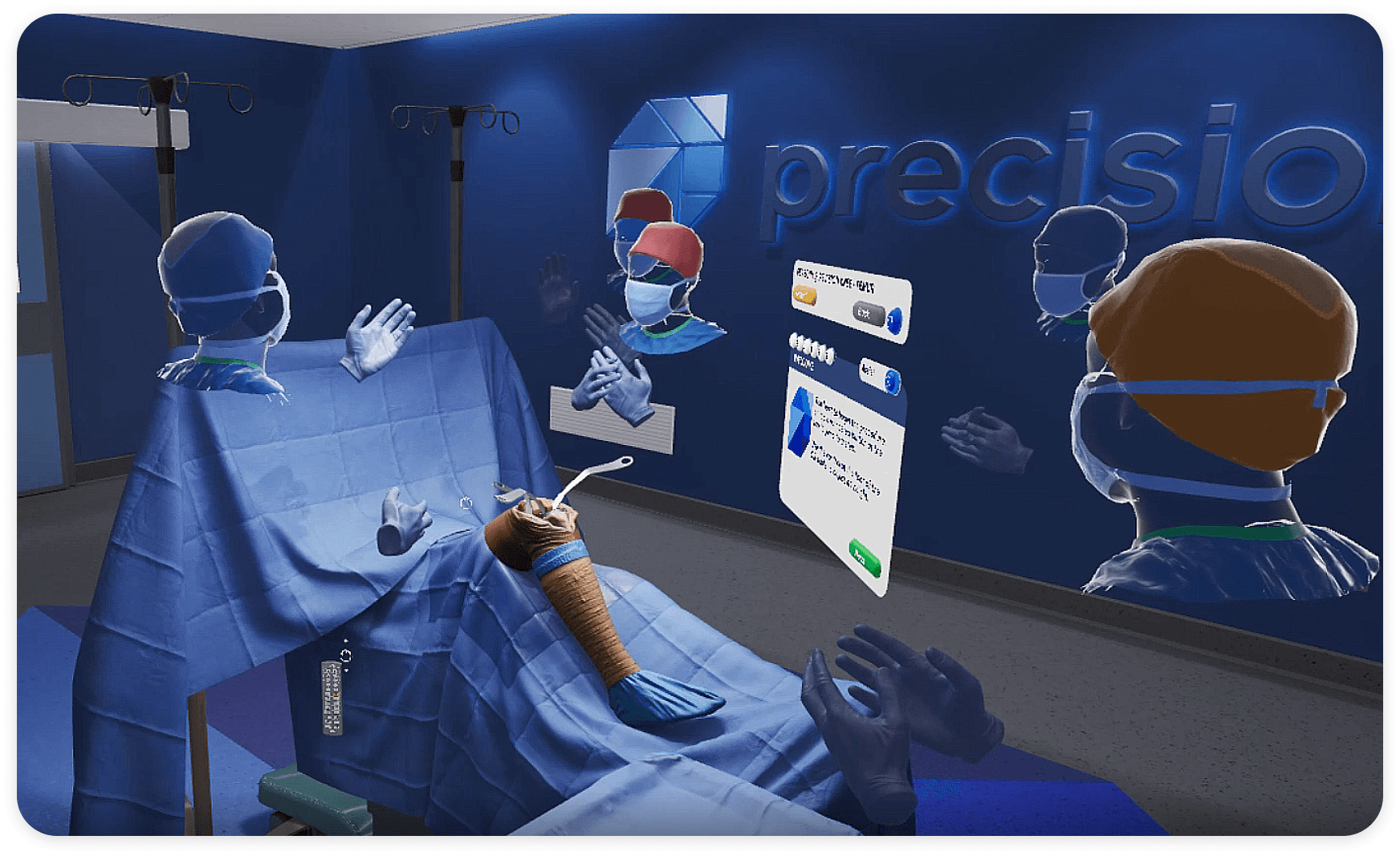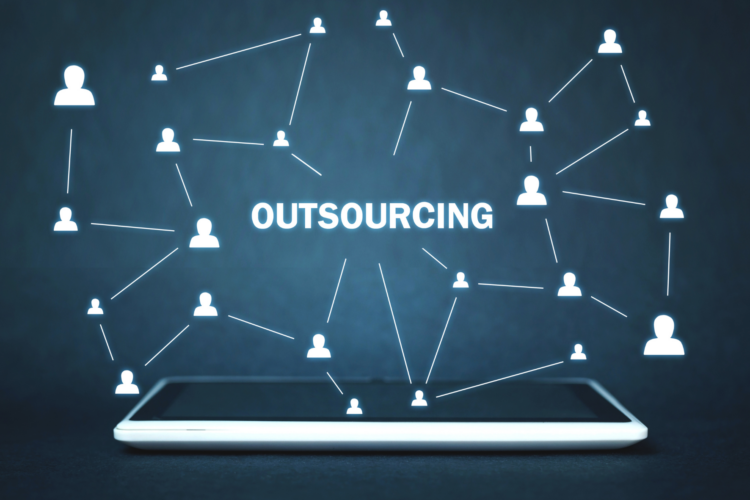The healthcare industry is facing enormous challenges. Strained health systems, an ongoing talent crisis, worldwide aging populations, along with other conditions will mark the future of healthcare for decades to come.
Luckily, the global entrepreneurship ecosystem has taken note of how these challenges -if they are to be properly tackled- demand efforts from those that can provide innovative solutions. And, of course, one of the most promising fields of technology was bound to play a key role in this process.
More and more, healthcare startups and established companies are exploring how the capacity of artificial intelligence to effectively process enormous amounts of data can help solve some of the wide arrays of issues faced by physicians, clinicians, and researchers in the healthcare industry.
Here, we will take a look at how the virtuous alliance between technological entrepreneurship and healthcare is changing the way we experience medicine – today and for years to come. But before that, let’s explore some of the underlying reasons why artificial intelligence has the capacity to transform healthcare in a profound and lasting way.
AI and the Healthcare Industry: Why it is a game changer
Essentially, Artificial Intelligence can be defined as the set of systems and processes that allow machines to mimic human thought and action. But, due to their inherent nature, machines can take those human traits to a whole new level. For example, our brains’ ability to rapidly process information can be multiplied exponentially through the use of intelligent machines.
Furthermore, AI has evolved rapidly into systems that are able to assimilate new learnings continuously and develop exceptional problem-solving skills. Machine Learning, Deep Learning, and Natural Language Processing are some of the most prominent -and promising- fields within the expanding realm of artificial intelligence.
So, how does this relates specifically to healthcare? Mainly, the way researchers and healthcare specialists are leveraging AI today is by taking advantage of their extraordinary capacity to process massive and complex amounts of data. Neural networks, deep learning architectures, and machine learning can turn different types of data sets into valuable medical insights.
These insights can be then used by physicians to improve their diagnosis capacities, their ability to treat diseases, and their chance to propose more individualized treatments; by researchers to develop new drugs and vaccines, and also to predict outcomes and forecast diseases more accurately; by healthcare institutions to improve overall patient management.
The history of AI-Healthcare relationships didn’t just begin overnight. We need to travel back as far as 1965 to discover the first problem-solving software system designed to address a healthcare-related issue. The system called Dendral was designed by researchers at Stanford University, and its goal was to identify unknown organic molecules by analyzing their mass spectra. Many other systems followed after. Dendral was the beginning of a long history of AI-Healthcare relationships that has amazed the world more than once and will likely continue in the upcoming decades.
Artificial Intelligence Healthcare Solution Companies: a new era of Healthcare
Artificial Intelligence healthcare solution companies have the mission of helping health systems improve the experience of patients and doctors. At the same time, in the context of a highly competitive business landscape, acquiring AI medical capabilities can bring substantial differential value to companies, boosting their opportunities to become leaders in their sectors.
After just a few decades of interaction between AI and the medical industry, AI healthcare companies have been able to provide more than a few solutions to the industry’s needs. Multiple areas in the healthcare industry are comprehended within the range of AI applications. Though most of the applications that are listed below have experienced tremendous development in these past few years, it is important to note that this list is far from being all-encompassing, let alone closed. In fact, it is rather likely that, in the near future, new ways to leverage AI technologies in the wide scope of healthcare areas will be discovered and developed by emerging AI medical companies.
Healthcare AI Companies
- Precise Dx
- Vida Diagnostics Inc. (VIDA)
- Mayo Clinic
- Ada Health
- Google Health/Deep Mind
- IBM Watson Health
- Oncora Medical
- Cloud MedX Health
- Babylon Health
- Butterfly Network
Keep reading to get to know how some of these companies use AI to improve healthcare services.
How PreciseDx uses AI for earlier diagnosis
Let’s begin with this key aspect of the healthcare experience. Essentially, diagnosis is a question of criteria and measurement. Criteria are mainly established by certain biomarkers that researchers and physicians have identified as indicators of symptoms for a given disease, though not the symptoms themselves. Now, once a biomarker has been associated with a certain disease, strategies for treatment efforts can be explored. But in order to do this, specialists need to have accurate methods to obtain precise metrics.
This is where AI kicks in. When a certain biomarker has been identified, but the input of data that needs to be processed in order to measure how it expresses itself in a patient’s body is simply too overwhelming for human beings, neural networks and machine learning models can effectively analyze and process this information in order to transform it into medical insights.
An AI healthcare company called PreciseDx – a spinoff of the New York-based Mount Sinai hospital network-, has recently collaborated with the Michael J. Fox Foundation for Parkinson’s Research to develop an AI-powered algorithm that is able to detect a protein on salivary glands that is linked to the disease. This will allow for earlier diagnosis of a disease that, due to the fact that its clinical symptoms tend to appear years after its beginning, has been traditionally affected by the consequences of late diagnosis.
Vida Diagnostics Incs uses AI for clinical trials and treatments
Oftentimes, the precision of a clinical trial can be affected by inefficiencies and data quality issues. When the metrics by which the outcome of a trial is defined are excessively general, they may leave out potential subcategories of patients or fail to see the possibility of positive outcomes for certain cases. Artificial Intelligence can change this by giving researchers and physicians the tools they need to improve diagnosis, guide therapeutics, and measure more accurately how patients respond to treatment.
An example of this is given by the AI healthcare company Vida Diagnostics Inc. (VIDA), which uses artificial intelligence and machine learning models to address data inefficiencies in lung and respiratory trials and therapies. Using retrospective analysis to evaluate the results of an emphysema treatment trial, they have been able to establish that a supposedly failed drug could in fact have positive outcomes. They achieved this by finding precision measures based on AI, which determined subclasses of patients with a positive response to the trials.
Mayo Clinic uses AI for outcome prediction
A key element of the clinical decision-making process is identifying when and why patients are at risk of suffering adverse events. In order to achieve this, researchers need to pull information from huge databases from past cases that help them establish patterns for outcomes. Artificial Intelligence and Machine Learning are able to provide predicting modeling tools to improve safety and outcomes for patients that experience different medical conditions.
Recently, Mayo Clinic researchers announced that they had developed an AI-powered risk model that was able to effectively predict pregnant women’s labor risks, determine whether or not a Cesarean section is needed in a given case, and evaluate risks for postpartum hemorrhage and other potential negative outcomes. This model is already helping obstetricians improve their intrapartum decision-making process.
Ada Health: An intelligent chatbot for Healthcare
Intelligent chatbots are probably one of the most well-known and extended uses of AI in healthcare. Chatbots of all types are based on Natural Language Processing and Natural Language Understanding, two of the most rapidly evolving AI features. By automating the most repetitive tasks, intelligent chatbots in healthcare can release doctors in primary care from a huge part of their burden, significantly reducing the levels of stress, risk of burnout, and overall job dissatisfaction – which, as we said at the beginning of this article, is one of the major and urgent challenges that the industry is facing today.
Chatbots also help patients learn to take care of their own health responsibly. During the pandemic, when a sea of potentially very harmful misinformation was spread across the Internet and even traditional media, chatbots played a key role in explaining the importance of safety measures.
One of the most famous AI healthcare chatbots in the market is Ada Health, which encourages users to describe their symptoms and ask questions in order to provide them with feedback and medical advice. In addition, it features a medical library with detailed information on health management and provides support for the storage and sharing of medical records.
AI and the future of healthcare companies
The purpose of AI in healthcare is not to replace human beings but to provide specialists and professionals with new tools to face the huge challenges they face, freeing them as much time as possible so that they can focus on patients’ well-being.
Today, there are urgent reasons why our societies need to develop tools to improve our health systems in every aspect of their functioning. While it was in high-income countries where the tendency of a shift in the distribution of the population toward older ages began, it has now spread to low- and middle-income countries. According to WHO, 1 in 6 people in the world will be aged 60 years or more by the end of this decade. These massive changes in the demographics of the world will put more pressure on our already strained health systems. Needless to say, innovation will be absolutely key to addressing these challenges.
For these reasons, the solutions that artificial intelligence can provide for healthcare issues will be essential for the upcoming decades. For companies in the healthcare industry, being part of this medical AI wave can give them a competitive edge that can positively impact their capacity for growth for years to come.















